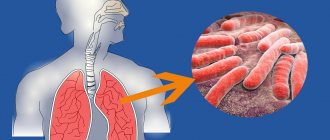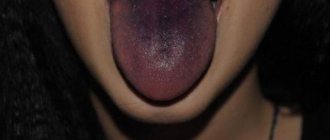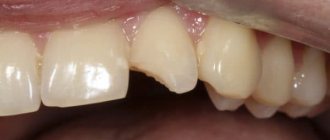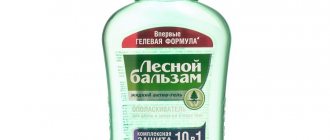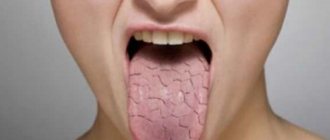How to get rid of normal thirst
To avoid thirst, it is necessary to regularly replenish fluid reserves. But you need to know your own norm. It is calculated using a simple formula: every day an adult should consume about 30-40 g of liquid for every 1 kg of body weight. But when making such calculations, a number of factors should be taken into account (they increase the body’s need for water):
- stressful situations;
- active lifestyle;
- pregnancy and lactation period;
- increased ambient temperature;
- colds, infectious diseases occurring with fever, vomiting and diarrhea.
Doctors say that on average a person should consume at least 1.2-1.5 liters of liquid per day. By the way, this includes not only drinking water, but also liquid contained in food.
Signs of abnormal thirst
When a person experiences constant, unquenchable thirst and wants to drink all the time, this turns into a pathology. Moreover, a person experiences a desire to drink water even after consuming a significant amount of liquid.
.
Thirst of a pathological nature is called “polydipsia” in the medical environment.
Unfortunately, most citizens completely ignore such alarm bells. But we must remember that some dangerous illnesses begin with just such simple symptoms. Unquenchable thirst is a signal from the body that deviations in its functioning are beginning.
Thirst is the first sign of dehydration
To understand that thirst has become abnormal, remember how much water you drink at a time. If such a quantity is not usual for a particular person, this is a reason to think about it. Moreover, you should pay attention to changes in the water diet that last for a long time, when there are no additional culprits for increasing the daily water intake.
Thirst as a consequence of illness
Sometimes, when looking for an answer to the question of why you want to drink a lot of water, you should look for the reasons in your own health. Sometimes prolonged and unquenchable thirst becomes evidence of the onset of a certain disease. This first symptom of the disease cannot be ignored.
Diabetes
Often abnormal thirst indicates the appearance of such a dangerous pathology. Therefore, if an increased urge to drink has been observed for a long time, and especially if there is a predisposition, you should immediately visit a doctor and undergo the necessary tests.
By the way, diabetes is an insidious disease. For a long time, many patients do not even suspect that they have such an illness and do not receive the necessary treatment. Sometimes it happens that a diagnosis is made only after a sharp deterioration in health, when the patient is taken by ambulance to the hospital.
Types of diabetes
With timely diagnosis and proper treatment, a person can avoid terrible consequences. And the result of advanced diabetes mellitus is quite serious things:
- complete blindness;
- death;
- gangrene and leg amputation.
Kidney failure
An increased desire to drink water may also indicate that a person has kidney problems. When you often feel thirsty, this means that the kidneys can no longer cope with their work and are not able to retain water in the body. In the presence of such a problem, there is a violation of the water-salt balance, which becomes the cause of dehydration.
Doctors define kidney failure as a pathology that accompanies various diseases. Depending on the intensity of the changes, chronic and acute renal failure are distinguished.
Kidney failure may cause abnormal thirst
According to statistics, acute renal failure is diagnosed annually in 100 people out of 500,000.
Doctors attribute the following factors to the culprits of kidney failure:
- diabetes;
- organ injury;
- arterial hypertension;
- alcohol addiction;
- severe viral infections;
- illiterate use of medications.
Liver diseases
Sometimes the reasons why your mouth gets dry and you feel thirsty are various liver problems. One of the common culprits of such problems is alcohol abuse. According to WHO experts, today about 200 million people worldwide suffer from various liver diseases. Liver diseases are among the ten most common causes of death.
Thirst also occurs with liver problems
The functioning and condition of this organ should be checked if, along with unquenchable thirst, a person experiences the following symptoms:
- constant nausea;
- severe dizziness;
- pain in the hypochondrium.
Treatment of extreme thirst
Treatment for dehydration depends on the underlying condition. All efforts are aimed at restoring the water-salt balance. It is not recommended to limit drinking. Let's consider the main recommendations aimed at eliminating the ailment:
To prevent the increased need for water from making itself felt often, drink ½ cup of clean water every hour
You need to drink at least 8 glasses or 2 liters of water per day. Pay attention to your urination. In order for the body not to suffer from dehydration, it is necessary to drink such an amount of fluid that the urine will not be dark or too light in color.
An indicator of normal fluid content in the body is moderately yellow urine without a strong odor. During sports and physical labor, it is necessary to replenish water reserves. To prevent dehydration, it is recommended to drink ½ glass of water 15-20 minutes before starting work or training. If the lack of fluid is constant, despite the large volumes of water consumed per day, then it is worth taking a blood test for sugar. Since it is quite possible that the malaise is caused by one of the forms of diabetes.
Night thirst
An insatiable craving to drink that appears at night is a fairly common phenomenon. The causes include both unpleasant factors (diseases and disorders) and completely harmless situations.
Thirst at night as a sign of illness
Some individuals do not react to the strangeness that appears and ignore this symptom, which is unacceptable. Indeed, in most cases, night thirst indicates the presence of ailments. Such as:
- diabetes;
- aldosteronism (neoplasms in the adrenal glands);
- hyperparathyroidism (calcium deficiency), this condition is accompanied by frequent urination;
- dehydration (a phenomenon observed in infectious pathologies) is accompanied by increased dryness of the mouth and tongue;
- pathologies of the cardiovascular system, thirst appears as a result of difficulty in supplying oxygen and blood to internal organs;
- cholera algid (with this pathology, complete dehydration is observed), additional symptoms include profuse, prolonged diarrhea and vomiting;
- kidney stones and formations in the organs make it difficult to separate urine, which gives rise to severe thirst due to impaired water-salt metabolism; in the presence of stones, the patient will experience painful urination.
Other causes of night thirst
Often the nighttime craving to constantly drink water becomes a consequence of banal overeating. Also, this syndrome can be triggered by high consumption of alcohol, tea and coffee the day before.
.
The cause of night thirst can be excessive alcohol consumption, which has a detrimental effect on the functioning of the entire body.
Ethyl alcohol actively promotes the leaching of fluid, and along with it, beneficial microelements leave the body. This provokes the development of strong thirst.
Some medications are also involved in the appearance of an unpleasant symptom. Diuretics especially contribute to dehydration. The following situations are also considered causes of night thirst:
- nasal congestion;
- viral disease;
- intoxication of the body;
- oncological processes;
- alcohol abuse;
- inflammation of the urinary system;
- carrying out radiation therapy in the neck and head area.
How to Avoid Night Thirst
How to return normal and healthy sleep? First of all, you should visit a doctor, conduct a full diagnosis of your own body and take care of your own health. What to drink so you don’t want to drink at night? There are some ways to help avoid nighttime torment:
- Before going to bed, consume a glass of kefir (preferably low-fat).
- An excellent way to quench your thirst is pure water with lemon juice added.
- You can drink green tea the day before. But it should not be consumed before going to bed, as this product can cause insomnia.
Tips on how to avoid constantly feeling thirsty
Thirst at night is a sign it's time to see a doctor
The cause of night thirst can be a change in brain biorhythms. This conclusion was reached by a professor of neurology at McGill University in Quebec. Doctors advise to be attentive to the body, since thirst may hide other problems.
Reasons why you feel thirsty
People say “a fish can’t walk on dry land,” if you ate a herring, and even a salted one, put a carafe of water by the bed. The body needs moisture to restore water-salt balance. The amount of salt a person needs is 4 grams per day. If the norm goes off scale, the cells release water to equalize the concentration and signal to the brain about a lack of moisture. As a result, the person begins to suffer from thirst.
Poor nutrition
A diet low in fruits and vegetables increases the risk of dehydration. Vitamin A and riboflavin deficiency lead to dry mouth.
Thirst also occurs if you ate fatty and heavy foods during the day and before bed. These foods cause acid reflux or heartburn.
Not drinking enough water
The human body consists of water - 90% in infants, 80% in adolescents, 70% in adults, 50% in elderly people. Lack of moisture leads to disease and old age. Every day a person loses water through sweat glands and urine. To compensate for the loss, the body turns on a protective mechanism - thirst. He needs clean water.
According to research by American scientists, the amount of water per day depends on the physiology, place of residence and human activity. Some need 8 glasses, others more.
The following symptoms indicate a lack of water in the body:
- go to the toilet rarely;
- constipation;
- dark colored urine;
- dry mouth;
- dry skin, sticky saliva;
- dizziness;
- feeling tired, lethargic, irritable;
- increase in pressure.
Problems with the nasopharynx
Thirst at night can be caused by nasal congestion. The person begins to “breathe” through his mouth. The air dries out the oral cavity and leads to difficulty breathing and dryness.
Taking medications
Night thirst can be caused by taking medications from the group of painkillers, for diabetes, hypertension, heart failure, against infectious and fungal diseases.
Diabetes
High blood sugar, like salt, attracts water from cells. For this reason, the kidneys work intensively and urination becomes more frequent. Due to lack of moisture, the body signals thirst. Doctors call diabetic thirst polydipsia. Frequent desire to drink is a symptom that you need to pay attention to and get examined.
Kidney diseases
The desire to drink a lot of water day and night can provoke kidney diseases - polycystic disease, pyelonephritis, cystitis, glomerular nephritis and diabetes insipidus. If the urinary tract becomes infected, the body causes increased urination to flush out toxins.
In diabetes insipidus, the kidneys are deficient in a hormone that helps them control the amount of water in the body. Excessive thirst is one of the symptoms of such diseases.
Anemia
Dry mouth may indicate anemia, a condition in which there are not enough healthy red blood cells. In addition to thirst, a person complains of dizziness, weakness, feeling tired, rapid pulse and sweating.
Is thirst dangerous at night?
The body's loss of water from 1-2% causes thirst. Often a person begins to experience it when the body is dehydrated. The body indicates a lack of moisture with symptoms:
- pain in the limbs and back;
- mood swings;
- dry and pale skin;
- fatigue and depression;
- constipation and infrequent urination;
- dark colored urine.
If the urine becomes dark, the body is trying to solve the problem of removing toxins by retaining water in the kidneys. Doctors advise, especially older people, to pay attention to the color of urine. You should be alarmed if you have not urinated for several hours.
Most causes of thirst indicate pathology in the body. Monitor your condition - if thirst is not related to medication or diet, consult a doctor.
How to get rid of night thirst
The amount of fluid in the body is 40-50 liters. It is needed to nourish cells and organs, intervertebral discs and the cardiovascular system. Thanks to the water in the compositions, shock-absorbing cushions are created and the gastrointestinal tract functions.
According to scientists, as soon as cells begin to experience moisture deficiency, the aging process begins. The daily need for water is 30 ml per 1 kg of weight. If you weigh 70 kg, your fluid volume is 2 liters. Other factors are taken into account: place of residence, physiological data and work.
If you don't like drinking water, eat vegetables, fruits and greens. They are natural suppliers of clean water. Freshly squeezed juices, green and fruit teas also quench your thirst.
Morning Thirst
Dry mouth and an increased desire to drink water in the morning are as common and widespread as thirst at night. Most often, this sign indicates that a person has some kind of disease (as is the case with night thirst). But there are a number of other reasons that are not dangerous to health. They are as follows:
- Intense loads. Dehydration is caused by heavy physical work during the night shift and vigorous exercise in the evening.
- Illiterate nutrition. One of the most common reasons explaining this syndrome. It arises due to the individual’s increased love for fatty, heavy and salty foods.
- Taking medications. Some of the medications have increased diuretic properties. As a result, large reserves of moisture leave the body. And the body requires its replenishment, especially in the morning, when a person does not drink for a long time.
You can overcome the morning desire to constantly drink water by adjusting your diet. The water-salt balance should be adjusted by adjusting the daily fluid intake. This is especially necessary if a person is being treated with diuretics.
Extreme thirst and medications
It is worth noting that polydipsia can be caused by taking medications that help remove moisture from the body. It can be:
- antibiotics;
- antihistamines;
- diuretics and weight loss drugs;
- expectorants.
In addition, some medications can cause increased sweating and thirst (for example), which is usually listed as their side effects.
Among the popular medications that cause thirst in many patients are Metformin, an antidiabetic drug used in the treatment of:
- Diabetes mellitus type 1 and 2.
- Impaired glucose tolerance.
- Gynecological diseases.
- Endocrinological disorders.
This drug is also used to normalize body weight, since its active substance reduces insulin production, significantly reducing appetite. While using Metformin, you should adhere to a carbohydrate-free diet, otherwise there may be side effects from the gastrointestinal tract - nausea, vomiting, loose stools, metallic taste in the mouth.
It is important to understand that with a competent approach to the use of Metformin in compliance with all the recommendations specified in the instructions for this drug, any side effects are excluded, including dehydration and thirst.
Let's summarize
Having carefully read everything that has been said, we can identify seven main culprits that provoke increased thirst in humans. There is no reason to panic if you want to drink in the heat, after intense physical activity or after consuming salty foods. But the situation changes when thirst arises completely unreasonably.
So, the most common culprits for an increased desire to drink water are the following reasons:
- Dehydration. The culprit of the syndrome is an illiterate diet, excessive stress, heat, excessive consumption of alcohol, coffee and tea. Health problems, illnesses that occur against a background of high fever, and indigestion are also causes. To overcome the attack, you should drink the prescribed amount of clean drinking water every day.
- Diabetes. In the presence of such a pathology, the body needs an increased amount of drink, and you always want to drink. The main reason is an increase in blood sugar levels. Well, you can get rid of indomitable thirst only with adequate and constant treatment of the underlying disease.
- Problems in the functioning of the parathyroid gland. This organ is responsible for the presence of calcium in the body. If it malfunctions, a person faces the problem of constant thirst. In this case, you should seek help from an endocrinologist.
- Long-term use of medications. Many medications, especially with a long course of therapy, cause a number of side effects, including increased thirst. Such drugs include diuretics, antibiotics, antihistamines and expectorants. In this case, consulting a doctor and adjusting the course of medication will help.
- Kidney diseases. The main task of this paired organ is to regulate the water-salt balance. Problems and disruptions in their normal operation lead to this problem. Plus, in this case, a person experiences pain and difficulty urinating.
- Liver pathologies. One of the striking symptoms of the development of a disease of this organ is increased thirst.
- Consequences of injury. An increased and constant desire to drink often occurs with a head injury. When cerebral edema develops as a result of severe damage.
It is almost impossible to cope with any of the above problems on your own. If you have to deal with a symptom such as an increased desire to drink, you need to contact a medical specialist and undergo a full examination of your body.
Constant thirst is when a person wants to drink more often than usual, and this desire arises regardless of physical activity, air temperature, salinity of food and other external factors.
Normal thirst itself is a normal response of the body to a violation of water-salt homeostasis, because water plays a vital life-sustaining role and is involved in almost all metabolic processes. But if there is a constant unquenchable thirst (polydipsia), then it is necessary to understand the causes of this abnormal condition.
Causes of water deficiency and thirst
Evaporation of water from sweat
. The body produces sweat when you exercise or the ambient temperature rises. If you're sweating and now you're thirsty, that's normal. Don't worry - this is a normal reaction. You should be wary of excessive sweating. Different people may experience different levels of sweating as normal. Sweating should be considered excessive if you observe a sharp increase in sweating compared to your usual level. Such a change can be a symptom of a number of diseases of the lungs, kidneys, heart, nervous system, immune system, and inflammatory processes. Inflammatory processes can be identified by elevated body temperature. Diagnosis of other factors will require visiting a doctor and conducting tests and laboratory tests.
High body temperature
may cause thirst. Take your temperature and see a doctor if it is elevated.
Very dry air.
If the air around you is very dry, the body loses moisture and a strong desire to drink arises. Air conditioners especially dry the air. If thirst goes away when the humidity normalizes, then the reason is not in your health, but in the dry air. Drink more water. Get some plants. Plants evaporate a lot of water, raising humidity.
Soft water
. If you drink water with insufficient mineral salts, you may feel constantly thirsty. Mineral salts promote the absorption of water and its retention in the body. Try drinking bottled water with a normal content of minerals, or, if this is not contraindicated for you, then mineral water of the sodium chloride group with a small content of salts. If it doesn’t help, then the reason is not the water, but something else.
Hard water, excess salts in the diet
. Excess mineral salts can also cause thirst, since salts, if in excess, attract water and prevent its normal absorption by cells. The kidneys remove excess salts along with water.
Diuretic food
. Some foods have a diuretic effect. For example, coffee. I can't drink coffee at all. Afterwards I die of thirst. Diuretic products help remove water from the body. Dehydration and desire to drink occur. Try to give up such food for a while. If thirst has disappeared, then everything is fine with your health, such thirst is safe, you can return to normal food intake, drink water for your health.
Spicy or salty foods
. Spicy or salty foods simply irritate the mouth and throat. Thirst arises reflexively. Avoid such foods for a while. If the thirst has passed, then there is no point in worrying further. You can return to your normal diet. It is completely normal to drink spicy and salty foods with plenty of water.
Kidney diseases
. Intensive urine production for no apparent reason indicates illness, in particular, it may be kidney disease.
Diabetes
. One of the very common causes of thirst is diabetes. With him we see such a picture. You drink a glass of water and almost immediately run to the toilet. Water is removed from the body very quickly. This happens in most cases, but not always. In case of acute thirst, you need to get your sugar checked in any case. Diabetes symptoms, causes, signs. Check blood and urine sugar levels.
Alcohol consumption
. Alcohol literally sucks water from tissues, creating general dehydration of the body. About the use and abuse of alcohol.
Household poisoning
. You may, without knowing it, be exposed to household poisons that are constantly around us. Try to think about it and eliminate contact with such substances, at least for a while, to check whether they are the cause of thirst.
Diagnosis of constant thirst
Correct diagnosis of constant thirst, that is, identifying the specific causes of its occurrence, involves collecting a detailed medical history, in which the doctor must take into account all the features of the patient’s health condition - from the number of urinations during the day to the characteristics of his usual diet.
Patients must submit:
- blood test for plasma glucose levels (including on an empty stomach);
- blood test for levels of potassium, calcium and sodium (osmotic concentration);
- blood chemistry;
- general urine analysis;
- urine analysis for relative density.
Based on the test results, the patient may need to consult an endocrinologist, hematologist, nephrologist, as well as a CT or MRI of the brain, kidneys, and adrenal glands.
Constant thirst: causes and recommendations of a general practitioner
The tissues of the human body contain water and various salts (more precisely, ions). The main ions that determine the salt composition of blood plasma and tissue fluid are sodium and potassium, and the anions are chlorides.
Its osmotic pressure, which ensures the shape of cells and their normal functioning, depends on the concentration of salts in the internal environment of the body. The ratio of salts and water is called water-electrolyte balance.
When it is violated, thirst occurs.
It becomes clear that thirst can be caused by the following groups of reasons:
- Reduced water intake into the body.
- Increased excretion of water from the body (including salts - osmotic diuresis).
- Increased intake of salts into the body.
- Reduced excretion of salts from the body.
- We should also not forget that the center of thirst is in the brain, and in some of its diseases this symptom may also appear.
Reduced water intake in the body
Thirst is often caused by a lack of fluid intake. It depends on the age, gender of people, their weight. It is believed that on average a person needs to drink at least one and a half liters of clean water per day. Therefore, the first thing you need to do when thirst appears is to increase the volume of water you drink, at least slightly, and monitor your well-being.
It is necessary to especially monitor the amount of water drunk in the elderly, malnourished patients, children and during the hot season.
Increased water excretion from the body
Drinking large amounts of beer causes intense thirst.
Water is removed from the human body in the following ways:
- through the kidneys;
- through the lungs and mucous membranes of the upper respiratory tract;
- through the skin;
- through the intestines.
Loss of water through the kidneys
Increased urine formation may occur when taking diuretics. Many of them promote the excretion of salts through the kidneys, which “pull” water along with them. Many medicinal plants, as well as weight loss products, also have a diuretic effect. Therefore, you should review the medications, herbal remedies and dietary supplements that a person takes.
Increased urination and, as a result, thirst is caused by drinking large volumes of liquid containing ethanol (for example, beer).
If a person is bothered by constant strong thirst, accompanied by the release of large amounts of light-colored urine (up to several liters per day), the most likely cause of this condition is diabetes insipidus. This is an endocrine disease accompanied by impaired water retention in the kidneys. An endocrinologist treats this disease.
Primary and secondary wrinkled kidney, acute and chronic pyelonephritis, chronic glomerulonephritis are the most common kidney diseases that cause increased urination and, as a result, thirst.
These diseases have a varied clinical picture, so if you suspect them, you should consult a therapist and undergo a minimum set of tests to determine kidney function (general and biochemical blood tests, general urine test, Zimnitsky urine test).
Separately, it is necessary to mention the so-called osmotic diuresis. When salts or other osmotically active substances (for example, glucose) are excreted from the body through the kidneys, according to the laws of physics, water is “pulled out” behind them. Increased fluid excretion causes thirst.
The main example of such a condition is diabetes mellitus. Thirst at the beginning of this disease is accompanied by the release of large amounts of urine. Itchy skin can help you suspect diabetes.
The first tests for suspected diabetes should be blood and urine glucose levels and a glucose tolerance test.
Hyperparathyroidism can also cause thirst. This is an endocrine disease associated with dysfunction of the parathyroid glands.
With this disease, calcium is primarily washed out of the bone tissue and excreted in the urine. Calcium is osmotically active and “pulls” water with it.
Weakness, fatigue, and pain in the legs will help to suspect hyperparathyroidism. A common early symptom of hyperparathyroidism is tooth loss.
Constant nausea, frequent vomiting, and weight loss are also characteristic of this disease. It is necessary to contact an endocrinologist for an in-depth examination.
Loss of water through the respiratory tract
Constant mouth breathing contributes to thirst. It can occur with hypertrophic rhinitis, adenoids in children, and night snoring. In such conditions, it is better to contact an ENT doctor.
Loss of fluid through the respiratory tract increases with rapid breathing (fever, oxygen deprivation, respiratory failure due to lung diseases, bronchitis, pneumonia). If you complain of shortness of breath, you should also consult a therapist to examine the respiratory and cardiovascular systems (lung X-ray and electrocardiogram are included in the minimum set of studies).
Loss of water through the skin
We are talking about increased sweating as a cause of constant thirst. Increased sweating can be physiological and temporary during heat or intense physical work.
Pathological increased sweating (generalized hyperhidrosis) can be a symptom of thyrotoxicosis, acromegaly, pathological menopause and other endocrine diseases, as well as Hodgkin's lymphoma. The latter is especially characterized by sweating in the evening and at night. If you experience excessive sweating, you should contact an endocrinologist.
We should also not forget about increased sweating as a side effect of certain medications (acetylsalicylic acid, insulin, etc.). Taking them may also be accompanied by thirst.
Loss of water through the intestines
Any condition associated with vomiting or loose stools causes thirst. The possibility of constant hidden bleeding from the gastrointestinal tract (intestinal tumor, hemorrhoids, etc.) should also be taken into account. Blood loss can sometimes be accompanied by thirst. To confirm blood loss through the intestines, a stool occult blood test is first prescribed.
Increased intake of salts into the body
Thirst is a natural consequence of an addiction to salty foods. Salt is absorbed from the stomach into the blood, osmotic pressure increases, and a protective reflex reaction of the body occurs - thirst. An increase in the intake of osmotically active substances is the cause of thirst due to the abuse of coffee and sweet carbonated drinks.
Retention of salts in the body
Moderate thirst can be a manifestation of hyperkalemia - an increase in the concentration of potassium in the blood. The cause of this condition is chronic renal failure.
Central regulation disorders
The thirst center is located in the hypothalamus. It can be affected by brain tumors, strokes and other focal lesions and injuries of the brain. In addition, disturbances in the central regulation of thirst can be observed in some mental disorders.
Based on what has been said
Constant thirst is a reason to take a blood sugar test.
If you are constantly thirsty, you must:
- Normalize the amount of fluid you drink.
- Avoid foods, medications, drinks and dietary supplements that can cause thirst.
- Contact your local therapist.
- Take general blood and urine tests, a biochemical blood test, undergo a chest x-ray and an ECG.
- If there are deviations in the tests, undergo an in-depth examination.
- If no deviations are found, it is advisable to contact an endocrinologist and examine your hormonal levels.
Which doctor should I contact?
The variety of causes of constant thirst dictates the need to consult an endocrinologist and therapist when it appears.
If the pathology of the endocrine glands (in particular, diabetes mellitus) is not confirmed, it is necessary to examine a neurologist (for brain damage), a nephrologist (for kidney disease), a pulmonologist and cardiologist (for shortness of breath), an ENT doctor, a gastroenterologist (for frequent vomiting, diarrhea ), proctologist (for hemorrhoids), oncologist (for suspected malignant tumor).
Take care of yourself and subscribe to our Zen channel, good luck!
Original article: https://myfamilydoctor.ru/postoyannaya-zhazhda-prichiny-i-rekomendacii-vracha-terapevta/
see also
The information is provided for informational purposes only. Do not self-medicate. At the first sign of disease, consult a doctor.
Source: https://zen.yandex.ru/media/id/5a294b285a104f22356138b9/5a2bcb554bf161e9e0e883c7
How to quench constant thirst?
To know how to quench your constant thirst, you need to determine the optimal amount of water consumed to maintain fluid balance. Considering that water-salt metabolism can have individual characteristics, the need to replenish fluid reserves in the body can vary significantly among different people and depends on their gender and age, mental state and level of physical activity, and the climatic conditions of the place of residence.
Remember that no sweetened carbonated drinks or beer will quench your thirst. Doctors also do not recommend drinking mineral water containing various salts. Heavily chilled water also does not help, since the body absorbs liquids best at a temperature of +22-25°C.
What can be done to prevent constant thirst? Avoid eating spicy, salty and fatty foods. It is necessary to eat more foods rich in water - vegetables and fruits. Nutritionists consider cucumbers, apples, oranges, melons, and watermelons to be “water-supplying.” Unsweetened green tea at room temperature, apple peel decoction, water with the addition of fresh lemon or grapefruit juice are very good at relieving the feeling of constant thirst. You can also rinse your mouth with cool water.
Contents of the article: classList.toggle()»>expand
A feeling of constant thirst, as well as dry mouth, are very common complaints of patients observed in various diseases. The reasons for the appearance of such symptoms can be quite varied, and they indicate both the presence of serious diseases and completely harmless and harmless disorders. It is important to correctly interpret such symptoms, as they can have significant diagnostic value.
What to do if you constantly feel the need to drink?
Constant thirst can be triggered by drinking other types of drink besides water. This is tea, coffee, lemonade, alcohol.
They do not quench thirst, so it occurs constantly. It is recommended to switch to plain water without gases to eliminate dehydration.
If a person drinks plain water, but thirst is not eliminated, it is recommended to check with a therapist or endocrinologist. Perhaps this is a sign of the initial stage of the disease.
If the test results do not reveal it, you can drink as much water as a person needs in 1 day. But it is recommended to limit its volume 1-2 hours before bedtime to reduce the load on the kidneys.
Possible reasons
There are many reasons for the appearance of thirst and dry mouth, since many factors lead to disruption of the processes of natural hydration of the oral mucosa. As a rule, in a global sense, the appearance of an uncomfortable feeling of constant dryness and thirst in the mouth is caused either by a violation of the composition of saliva (quantitative or qualitative), or by the fact that the process of natural normal perception in the oral cavity is disrupted, that is, the receptors responsible for the perception of the presence of saliva are working wrong.
Most often, constant thirst and dry mouth appear due to
:
- General changes and disturbances in the sensitivity mechanism of the main receptors in the oral cavity.
- Disturbances in the body's normal balance of water-salt metabolism.
- Disturbances and changes in natural trophic processes in the oral cavity.
- Increased osmotic blood pressure.
- Dysregulation of saliva synthesis in humoral and neural terms.
- The presence of internal intoxication, as well as poisoning of the body with any toxic substances.
- Drying of the oral mucosa with air, mechanically, for example, when breathing through the mouth.
Most often, dry mouth occurs when
:
- Diabetes mellitus
. In most cases, a feeling of dry mouth that is persistent and permanent is a symptom of this disease. Diabetes is usually indicated by two factors at once: dry mouth with excessive urine production during the day and a constant feeling of thirst. If both symptoms are present, the diagnosis is considered obvious and requires diagnostics to clarify the type and nature of the disease. - Exposure to high temperatures for long periods of time
. When the body overheats, a person naturally develops thirst and dry mouth. - Talking for a long time
, breathing through your mouth or sleeping with your mouth open and snoring. In this case, the usual drying out of the mucous membrane occurs under the influence of air.
- Taking certain types of medications
, in particular antibiotics, as well as various drugs used in the treatment of hypertension. - Various oral diseases
. - Normal dehydration of the body
, for example, in cases where a person consumes an insufficient amount of water per day. Dehydration is also a frequent accompaniment of various diseases and disorders of the digestive system, accompanied by diarrhea or vomiting. - Intoxication of the body
, for example, alcoholic or caused by other substances. - Tobacco smoking
. - Diseases of the nervous system and brain
, in which the natural regulation of saliva synthesis occurs. Such diseases include Alzheimer's and Parkinson's diseases, circulatory disorders, strokes, and trigeminal neuritis. - Pathologies of the abdominal organs of a surgical nature in an acute form
, for example, cholecystitis, appendicitis, intestinal obstruction, perforated ulcer. - Various diseases of the digestive system
, in particular hepatitis, gastritis, pancreatitis, stomach or intestinal ulcers. - Diseases and various infections of a purulent nature in acute form
.
Diagnostics
To find out the cause of constant thirst and dry mouth, you need to consult a therapist or general practitioner. The specialist carries out an initial examination of the patient, and then, if a specific pathology is detected, he can refer him to doctors of a different profile. The diagnostic search involves conducting advanced laboratory tests and standard imaging studies. The most informative for diagnosis are:
- Blood test for glucose
. Sugar levels are measured at the first visit to the doctor, regardless of food intake; if high levels are obtained, a glucose tolerance test is prescribed and the fasting sugar level is determined. Be sure to do a test for the presence of glucose in the urine, which is typical for diabetes. - Hormone analysis
. The study includes assessment of the level of thyroxine and triiodothyronine, corticosteroids, and parathyroid hormone. In case of high glycemia, the amount of insulin in the blood is determined; for differential diagnosis between type 1 and type 2 diabetes, a C-peptide test is performed. Plasma concentrations of calcium, phosphorus and sodium are also examined. - Ultrasound examination
. To clarify the cause of persistent polydipsia, an ultrasound scan of the thyroid gland and parathyroid glands, adrenal glands, and liver is required. If a heterogeneous echogenic structure of the liver parenchyma is detected, non-invasive elastography of the liver is recommended to assess the degree of fibrosis. - X-ray examination
. When constant thirst is combined with shortness of breath and other respiratory symptoms, a chest x-ray is indicated in frontal and lateral projections. The images reveal signs of emphysema, sclerosis and bronchial deformation. An examination of the ENT organs is required, and a culture of sputum or a throat smear is performed. - Neurological examination
. To exclude the cerebral origin of persistent polydipsia, an examination by a neurologist is necessary to check the symmetry of reflexes and assess the functioning of the autonomic nervous system. If there are suspicious signs, an x-ray of the sella turcica is performed. According to indications, a CT scan of the brain is prescribed.
Constant thirst may be a sign of diabetes
Dry mouth without thirst
The appearance of dry mouth without a constant feeling of thirst is often a symptom of hypotension
, which represents an almost constant decrease in blood pressure. Of course, not every hypotensive person feels the symptoms of his disorder in the form of weakness, dizziness, dry mouth without thirst, severe headaches in the occipital area and temples, especially in a lying position and when bending forward. Many people with hypotension feel absolutely normal, which is also a variant of the norm.
However, hypotensive people often experience severe dry mouth in the morning, as well as fatigue literally 1 to 2 hours after waking up and getting out of bed, lethargy, which usually returns in the evening.
With hypotension, a circulatory disorder occurs, which cannot but affect the general condition of the body and the functioning of all systems, organs and glands, where the salivary glands are no exception.
Dry mouth with belching, diarrhea, flatulence
, nausea and nagging pain in the left side of the abdomen usually indicate pancreatitis. In some cases, this disease can occur unnoticed, accompanied only by dry mouth.
In older women, dry mouth is often caused by menopause.
. When menopause occurs, a woman’s body decreases the intensity of production of almost all hormones related to the reproductive system, as its effect fades. Of course, this cannot but affect the general condition of the body, which leads to sleep disturbances, a feeling of chills and hot flashes, a feeling of anxiety and dry mucous membranes, including in the mouth.
Treatment
Help before diagnosis
Constant, painful thirst is an absolute indication for a visit to a specialist, since this symptom develops in various pathological conditions that require differential diagnosis. Medications are not used until the diagnosis is verified. When thirsty with polyuria, the patient is allowed to consume any amount of water to prevent dehydration. If a strong desire to drink is accompanied by edema and ascites, the amount of water consumption should be limited to 2 liters per day.
Conservative therapy
If there is a constant feeling of thirst with dry mouth, etiotropic and pathogenetic therapy is prescribed, aimed at eliminating the cause of the symptoms. In case of glycemic disorders, a diet is selected with a limitation of fast carbohydrates and animal fats, which involves frequent and split meals. To correct the water-electrolyte composition of the blood, crystalloid and colloid solutions are administered intravenously using a dropper. The drug treatment regimen may include the following groups of drugs:
- Antihyperglycemic drugs
. To correct hyperglycemia in type 2 diabetes, biguanides (metformin), sulfonylurea derivatives and their combinations are used. If effectiveness is insufficient, DPP-4 inhibitors and GLP-1 agonists are recommended. - Hormonal agents
. For type 1 diabetes mellitus, an adequate insulin therapy regimen is selected with a combination of short- and long-acting insulins. For acromegaly, a synthetic analogue of somatostatin is used. - Hepatoprotectors
. The drugs stimulate the regeneration of liver parenchyma and prevent the effects of damaging agents on hepatocytes. This group includes essential phospholipids, amino acids (ademetionine), and herbal remedies. - Bronchodilators
. Medicines are indicated for chronic obstructive pulmonary diseases, which are accompanied by fluid loss due to severe shortness of breath. The drugs are combined with inhaled glucocorticosteroids. - Neuroleptics
. Mental disorders in which an uncontrollable feeling of constant thirst develops require the use of special psychotropic medications. Preferred drugs that selectively affect the brain and effectively eliminate symptoms.
Surgery
For hormonally active tumors of the adrenal glands, pituitary gland, and parathyroid glands, their removal is required. In the case of pituitary adenoma, transnasal surgery is often used, which is less traumatic. In case of adenoid vegetations of 2-3 degrees, to restore nasal breathing, the formations are removed in the traditional way or using cryodestruction. Chronic hypertrophic rhinitis, combined with nasal breathing disorders and general manifestations, is considered an indication for conchotomy.
Causes of constant thirst
Of course, the reason for severe thirst can be very simple and banal, and consist of prolonged exposure to the sun, dehydration, or consumption of large amounts of smoked and salty foods, but often the situation is very serious and the cause of constant thirst is diabetes mellitus.
The appearance of a dry mouth coupled with constant thirst is usually the main sign of diabetes.
In diabetes mellitus, there is excessive frequent visiting of the toilet in order to empty the bladder against the background of a constant feeling of thirst and dry mouth. In addition to these signs, which are considered the main ones, the patient may have cracks in the corners of the mouth, weakness, sudden weight gain or loss, increased or decreased appetite, the appearance of pustular elements on the skin, itching of the skin, which in women is also accompanied by itching in the vagina.
In men, inflammation of the foreskin and decreased potency levels may additionally occur.
.
An important point is that in diabetic patients, the level of thirst and the need for water consumption does not depend on the time of day and ambient temperature.
With diabetes, a person is always thirsty, and drinking liquid relieves the feeling of thirst only for a very short period of time. This is explained by the fact that the increase in glucose levels that occurs with diabetes leads to increased production of urine, as a result of which a person is forced to visit the toilet very often to remove it. As a result, dehydration occurs in the body, which leads to severe thirst.
Etiology of the phenomenon
The most common cause is the use of certain medications, which, among their side effects, cause a decrease in saliva production. Because of this, a constant feeling of thirst and dry mouth are most often found among pensioners.
Drugs of this type include:
- hypotensive and hypoglycemic;
- steroid inhalers, antipsychotics and antidepressants;
- antihistamines;
- diuretics;
- anti-inflammatory nonsteroids; euthyrox;
- anticoagulants.
- strokes and micro-strokes;
- Alzheimer's or Parkinson's disease;
- pathology of the trigeminal nerve.
This is especially pronounced if 2 different drugs are taken at one time.
Complaints of severe dry mouth and constant thirst do not always prompt a doctor to thoroughly investigate the cause. This is difficult to diagnose and indicates poor quality of care.
The doctor most often makes a note in the card of such a patient: xerostomia of unknown etiology. For examination and identification of causes, it is better to contact large clinics.
Also, the cause of constant thirst and dry mouth can be a violation of the cortical functions of the brain, these are:
The fact is that with these pathologies, signals to the peripheral nervous system to the salivary glands either do not arrive or are transmitted intermittently. Gland dysfunction occurs, a constant feeling of thirst in the mouth and dryness.
Dry mouth at night
At night, dry mouth often occurs due to the consumption of a large amount of protein food for dinner, since the body requires a large amount of water to break it down. For this reason, if a person ate dairy, meat or any legume products for dinner, he will experience a feeling of heat and dry mouth at night.
To prevent the body from drying out overnight, it is important to eat light foods for dinner.
Another reason why you feel dry in the mouth and want to drink is taking certain medications.
, for example, lowering blood pressure levels. Therefore, it is necessary to read the instructions for the medicine, especially the section on side effects.
The presence of diabetes also causes constant dry mouth, including at night, which is why a person is forced to wake up frequently to drink water.
similar articles
399 1
15 787 0
224 0
Sleeping with your mouth open is one of the simplest and most common causes of dry mouth at night. This condition is often observed in people who snore. In this case, the mucous membranes of the oral cavity are dried by the air entering it.
Air conditioning can also cause dry mouth and thirst at night, since this technique greatly dries out the air in the room. In this case, it is recommended to install special air humidifiers.
Why do you want to drink?
- Dehydration
is the most common reason why you feel thirsty. Dehydration occurs when you lose more fluid than you take in through food and drink. This is possible in hot weather or during active physical work, when you sweat a lot. Sometimes dehydration develops due to illness. Particularly common causes of dehydration are intestinal infections with vomiting and diarrhea or other diseases with high fever, especially in children. Dehydration can greatly worsen your health, reduce performance, and cause headaches and drowsiness. Severe dehydration is dangerous to health and life. Learn more about how to protect yourself from dehydration. - Foods, especially salty and spicy foods,
can cause extreme thirst and dry mouth. Sometimes thirst is caused by simple overeating. Therefore, if you are always thirsty, remember what you ate the day before. - Medicines
such as antidepressants, antihistamines, diuretics and some herbal remedies sometimes cause dry mouth and thirst. These medications may affect the salivary glands, inhibiting their function, or increase the body's secretion of water. Talk to your prescriber about changing your medication if it causes you symptoms that are bothersome. - Diabetes mellitus
is accompanied by polydipsia, as well as the need to urinate frequently, increased fatigue and sometimes itchy skin. Dry mouth and thirst are often the first symptoms of diabetes, when a person is not yet aware of his problems. In diabetes, the body does not absorb glucose (sugar), which is needed for energy. High glucose concentrations cause the kidneys to produce more urine, which increases fluid loss and makes you want to drink constantly. - Diabetes insipidus
is a rare disease associated with a malfunction of the kidneys, which begin to produce too much urine, so you are constantly thirsty. The disease most often develops in children and young people and is associated either with a lack of a hormone called antidiuretic, or with a decrease in the sensitivity of the kidneys to it. The cause of the disease, for example, may be injury or a brain tumor. - Pregnancy
is very often accompanied by a feeling of thirst, as well as increased urination. As a rule, these symptoms are associated with normal changes in a woman’s body during pregnancy and do not require concern. However, in rare cases, they may indicate the development of gestational diabetes. Therefore, all women should monitor their blood sugar levels several times during pregnancy. To do this, you need to contact a antenatal clinic.
Dry mouth in the morning
Dry mouth in the morning can occur for various reasons. Quite often, this phenomenon is observed immediately after waking up due to an increase in the viscosity of saliva or insufficient production of it in the oral cavity. The same reasons can also cause a feeling of dryness at night.
Extreme thirst and dry mouth are signs of type 2 diabetes. In this case, thirst accompanies the person at night, as does the need to frequently visit the toilet.
The consumption of pickled, smoked, too salty or spicy foods by a healthy person in the evening of the previous day often leads to the fact that in the morning when waking up a person experiences severe thirst due to dehydration, since in order to process such foods the body requires a large amount of water, which it takes from the tissues .
Dry mouth in the morning also appears in people with various diseases of the respiratory system, for example, rhinitis, sore throat, flu, adenoids.
We should not forget that the functioning of the salivary glands is disrupted by drinking alcohol and smoking, so people suffering from such bad habits experience dry mouth in the morning almost every day.
Treatment with various psychotropic drugs and heavy therapy, in particular chemical and radiation therapy for oncology, also lead to the same manifestations. Dryness in the morning is also caused by diseases of the digestive system, as well as frequent consumption of coffee or black tea during the day.
Common associated symptoms of dryness
Associated symptoms of constant thirst, dry mouth and causes:
- Weakness. When the oral cavity dries out, a person quickly begins to feel constant weakness without hints of vigor. This may be due to a viral infection, external intoxication; manifestation of anemia; oncology; CNS diseases. Weakness is an early sign of many diseases. Especially if it is combined with dry mouth.
- Nausea. Dry mouth and nausea are often combined with thirst. Usually occur with acute intestinal infections and food poisoning. They appear first in the clinical picture. But it can also simply be an error in nutrition - for example, after a strict diet, a person suddenly decided to have a belly festival.
- Dry lips. It occurs when the size of the excretory ducts of the salivary glands bordering the lips increases. The lower lip becomes as if chapped, dry and flaky. Seizures and cracks appear in the corners of the mouth. With chronic cheilitis, the process can become malignant.
- Plaque on the tongue. Dry mouth and persistent plaque on the tongue occur with gastritis, colitis, stomach ulcers, and duodenal ulcers. Plaque on the tongue may be white - with pathologies of the stomach; yellow – for cholecystitis and hepatitis, pancreatitis.
- A red tongue and inflamed tonsils are nasopharyngeal infections. If the tongue burns, there is a metallic taste in the mouth - gum disease or caries. If acute abdominal pain or cramps also occur, acute abdomen or pancreatitis can be suspected. It's better to see a surgeon.
- Bitterness in the mouth. The combination of dryness and bitterness in the mouth clearly indicates a pathology of the biliary system, as already mentioned.
- Severe dizziness and dry mouth indicate cerebral circulation disorders. This may be a brain disease in the initial stage or a resulting intoxication of the body.
- Frequent urination. It is accompanied by polydipsia, sweating and persistent dry mouth - all these are signs of diabetes. The fact is that hyperglycemia increases osmotic pressure, which attracts and retains water inside the vessels. The mucous membranes begin to dry, they release fluid into the blood. Hence the constant thirst. A vicious circle arises - polydipsia causes frequent urination, sweating, which causes thirst again.
Dry mouth and thirst during pregnancy
Pregnant women, in normal health, should not experience dry mouth, since during this period there is an increased level of saliva production. A feeling of thirst and dryness in the oral cavity during this period in a woman in normal condition can only be observed in the hot season and when the air is excessively dry.
In addition, a healthy woman during pregnancy may experience some feeling of thirst in the later stages, since at this time the volume of urine excreted per day increases, which leads to a state of some degree of dehydration, and the body requires more water to replenish moisture losses.
If a woman experiences frequent and severe dry mouth
If you have a metallic, sour taste, you should consult your doctor, as these symptoms may indicate gestational diabetes. In this case, you will need to undergo additional examination and undergo a number of tests, including glucose levels and glucose tolerance.
Another cause of dry mouth during pregnancy may be a severe deficiency of potassium in the body against the background of a significant excess of magnesium. In this case, the doctor will recommend following a certain diet and may prescribe special vitamin complexes to solve the problem.
You drink a lot, five or even ten liters a day, but the thirst does not go away. At the same time, I constantly want to go to the toilet.
What could it be?
This picture is typical for diabetes mellitus. As a result of the disease, the level of glucose in the blood increases. This leads to increased formation and excretion of urine, which means dehydration.
Thirst also torments a person with another type of diabetes - diabetes insipidus, which develops due to the fact that the pituitary gland does not produce enough of the hormone vasopressin. Its deficiency also leads to increased urination, dehydration, and therefore an increased need to drink.
What to do?
You need to contact an endocrinologist for a diagnosis. If you have diabetes, you will need glucose-lowering medications and possibly insulin injections. For diabetes insipidus - replacement therapy with vasopressin analogues.
Is it possible to deal with the problem on your own?
Night thirst is not always an alarming symptom. Of course, when a child constantly asks to drink, he needs to be shown to a doctor. The same applies to older people. If this symptom periodically bothers an adult and healthy person, you can try to take independent measures. First of all, you need to pay attention to how much water you drink during the day.
The norm is considered to be 2-2.5 liters of fluid per day. But you need to take into account that in the hot season you need to drink more, since a large amount of water is lost through sweat. In this case, you do not need to count sweet (carbonated) drinks - only pure water counts. Towards the evening, you should also give up black tea or coffee - they have a mild diuretic effect, helping to remove fluid from the body.
In winter, with the onset of the heating season, the air in city apartments becomes very dry. Because of this, the mucous membrane of the oropharynx quickly dries out at night, causing the desire to drink. You can humidify the air in your apartment using special humidifiers, placing several vessels with water in the room, or simply covering the heating radiators with a damp cloth.
To sleep well, a person needs comfortable conditions, and not only external ones. A comfortable bed and a warm blanket are sometimes not enough - strong emotions, hunger and, of course, thirst can interfere with a good night's rest. Therefore, for those who often feel thirsty before going to bed and during the night, it is important to find out what the body wants to tell them in this way. Maybe they drink little fluid during the day or eat a lot of spicy and salty foods for dinner? Or is the problem much more serious, and you need to take care of your health as quickly as possible? Let's try to figure it out.
Situation 2
Although you drink a lot, little urine is excreted, and swelling has appeared.
What could it be?
Kidney problems. Persistent thirst occurs with pyelonephritis, glomerulonephritis, hydronephrosis and polycystic kidney disease.
What to do?
Contact a nephrologist without delay. The doctor will determine the diagnosis and select treatment. Don't delay your visit! Thirst may indicate developing kidney failure. This most dangerous condition is often detected too late, when the patient can only be helped by hemodialysis or a kidney transplant. Therefore, paying attention to it in time means saving the kidneys from further destruction.
Situation 3
You are not only thirsty all the time, but you have also lost a lot of weight, feel pain in your bones, and get tired quickly. At the same time, you go to the toilet often, the urine has become whiter.
What could it be?
Such symptoms indicate increased function of the parathyroid glands. Against the background of this disease, calcium metabolism is disrupted; it is abundantly excreted in the urine, which is why it changes color.
What to do?
You need to contact an endocrinologist. Hyperparathyroidism is a condition that can lead to complications, including bone fractures and duodenal ulcers. In addition, increased activity of the parathyroid glands may indicate the formation of an adenoma - a benign tumor - in them. Therefore, it is important to start treatment on time.
Situation 4
You are constantly thirsty, if there is a lack of water, you are prone to whims, irritable and conflict-ridden, but no other ailments are observed.
What could it be?
This condition is attributed to thirst of an unclear nature; the reasons here are more psychological than physiological.
What to do?
To be on the safe side, it's worth getting your kidneys checked. If they are healthy and have the opportunity to quench their thirst more often with green tea or clean water, then it’s okay.
If drinking plenty leads to swelling, try to trick the body. Lean into the water and take a few swallows, but don't drink. If the reason is psychological, this is sometimes enough for our brain to feel like it has quenched its thirst for a while.
Situation 5
Intense thirst began to occur after you started taking medications for hypertension.
What could it be?
Medicines to lower blood pressure have a diuretic effect and also cause dry mouth. Because of this, thirst may increase. Other diuretics that some people use to try to lose weight can have the same effect.
What to do?
For hypertension, consult your doctor and, if possible, replace medications with diuretic effects with others. But it’s better to lose weight through diet and exercise, rather than drugs and dietary supplements with diuretic components. Moreover, they only create the illusion of weight loss: it is not fat that goes away, but water, which is quickly replenished once you drink it.




